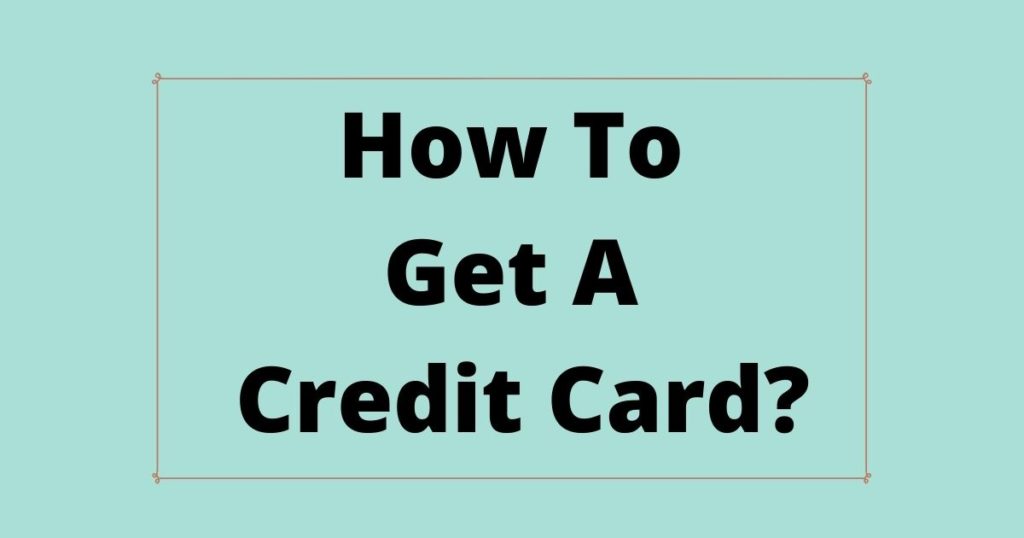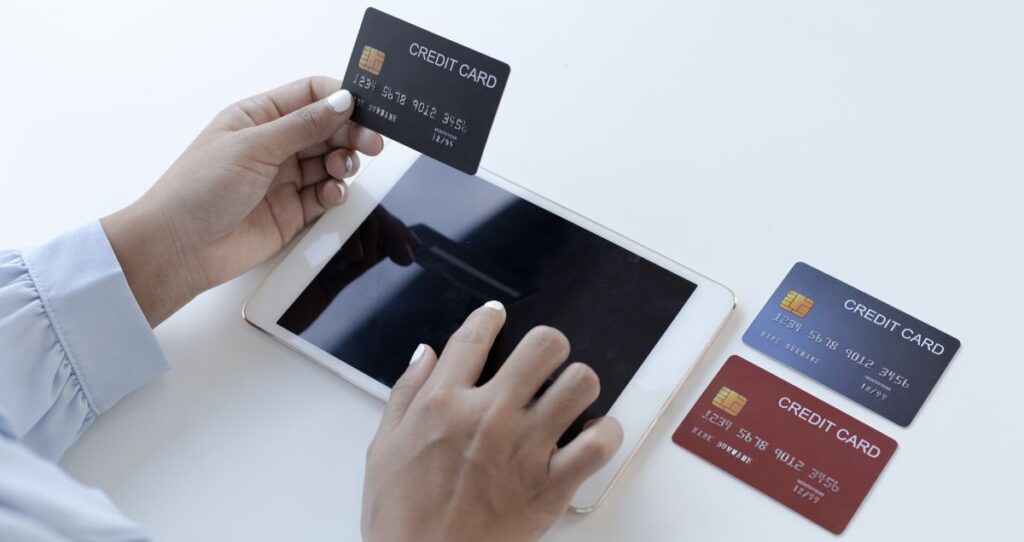Using a credit card can help you improve your credit score and build your credit history. Paying your credit card balances on time each month will help you boost your score. This is because your payment history is the biggest factor in your credit score with 35% of your FICO score and 40% of your VantageScore. Credit scoring models apply more weight to your payment history because paying your bills on time shows that you are financially responsible. This article will walk you through possible ways using a credit card can affect your credit score in a positive way.
Using a credit card will affect your credit score as your credit utilization gets reported to major credit reporting bureaus. Credit utilization is nothing other than how much you have spent compared to the available credit limit on your credit card. Having a higher credit utilization will negatively affect your credit score. But, a lower credit utilization will certainly improve your credit score. Most lenders suggest that you keep your utilization rate at no more than 30%. But, for people who are rebuilding their credits, it is critical to keep their utilization to less than 10%. If possible, never carry balances on your credit cards.
Not only that a lower credit utilization will boost your credit score, but a lower credit card balance is easy to pay off. This in the end prevents you from accumulating too much credit card debt or hurting your credit.
Using a credit card can affect your credit score by improving your credit age. Any credit account you have helps you increase the age of your credit which is critical in building your credit history. That is a credit card can help you build the credit that is necessary to qualify for other loans such as car loans, mortgages, personal loans, etc.
How can opening a credit card affect your credit score?
Using a credit card will definitely affect your credit score. Opening a credit card account will also affect your credit score. A credit card is a form of revolving credit. When you apply for a credit card, the card issuer will check your credit file which will result in a hard inquiry on your credit reports and lower your credit score.
After getting your credit card, your existing credit limit will go higher. An increase in your credit limit will lower your credit utilization which might increase your credit score. But, the age of your credit will also go lower after getting a new credit account. So, your credit score might go lower in short term due to a decrease in your credit age.
The point here is that getting a new credit card will directly affect some of the factors used to calculate your credit score. These factors are your credit utilization, the age of your credit, credit mix, and hard inquiries.
Details on how opening a credit card account will affect your score
- You will get a hard inquiry. A hard inquiry will appear on your credit report when your credit card issuer views your credit file. As a result, your credit score will go lower by 5-10 points from each hard inquiry on your credit report.
- A new credit card will increase your credit utilization. A new credit card will come with its credit limit which will increase your overall credit limit. An increase in credit limit will lower your credit utilization and improve your credit score. For example, if your current credit limit is $1,000 with a utilization rate of 60% and you get a cash-back credit card with a $1,500 credit limit, your new credit limit will be $2,500. Due to this increase in credit limit, your new credit utilization will become 24%. By getting a new credit card, your credit limit went from 60% to 24%. This improvement in your credit utilization will increase your credit score.
- A new credit card will lower the age of your credit. Since your credit age is the average age of your credit accounts, a new credit card will result in a lower average which might lower your credit score.
- A new credit card might improve your credit mix. Credit mix refers to the different types of credit accounts that you have. Having a good credit mix shows that you can deal with various credit accounts which makes you a less risky borrower. For example, a person with a mortgage, car loan, and credit card with excellent payment history can stand out compared to someone with just two credit cards. If you had other forms of credit such as student loans, car loans, or revolving credit, using a credit card can increase your credit score by improving your credit mix.
Does closing a credit card affect your credit score?
Closing a credit card account can hurt your score due to a number of reasons. One thing about credit scores is that one simple activity on your account can affect multiple factors that affect your score. Closing your credit card will lower your credit score by a few points depending on the account you closed and its age. The older or higher limit the account you closed has, the more points you will lose on your credit score.
So, how does closing a credit card affect your credit score?
- Closing a credit card might increase your credit utilization. If you have a 0% utilization, this rate will not go higher when you close an account. But, if your utilization rate is not zero, closing your credit card will automatically lower your overall credit limit which in turn will increase your utilization rate. An increase in your credit utilization might lower your credit score.
- Closing a credit card might affect your credit mix. Credit scoring models apply some weight to your credit mix. By closing a credit card account, you might affect your credit mix which will affect your credit score.
- Closing a credit card will lower your credit age which might lower your credit score. Depending on the age of the credit card you closed and its credit limit you might see a small or big change in your credit score. Generally, older credit card accounts contribute more to your credit age and credit score. At the same time, higher credit limit credit cards help you minimize your credit utilization. Closing such an account can cause a big dent in your credit score. This is because the age of your credit affects 15% of your FICO score and 21%(credit mix and age of your credit) of your VantageScore.
Even if closing your credit card account might not drop your credit score by a lot of points; it is always a good idea to not close your account when you can. By keeping your account open, you get to keep your credit limit, the age of your credit, and your credit mix intact. If you are planning to not actively use your card, put a small monthly payment on the account to keep it active.
In case your credit card account has an annual fee, it might be a good idea to close the account. This is because paying a fee on a credit card is not a good idea. But, paying a fee when you are not using a credit card is one of the worst decisions you can make with your money.
How to properly use your credit card?
Credit cards are some of the best financial products you can use to build credit and increase your credit score. In addition, you can save money on credit card purchases through cashback, miles, and points. Furthermore, credit card issuers might give you a sign-up bonus which is free money. Finally, credit cards are great for people who are getting started with credit or those who are rebuilding their credit.
If not used correctly, however, credit cards can leave a big scar on your finances. Not only that your credit score can take a hit, but you could also hurt your credit and accumulate a lot of credit card debt.
The good news is that there are ways to safely use credit cards and avoid all the risks of hurting your credit or getting into credit card debts.
Tips to properly use your credit cards
- Pay your credit card balances on time and in full each month. Not paying your credit card balances on time is the worst decision you can make. Payment history is the biggest factor in your credit score(both FICO and Vantage scores) calculation. A single late payment can drop your credit score by as much as 180 points and will stay on your credit reports for 7 years. Although you will have 30 days before a payment is reported to credit bureaus(Equifax, Experian, TransUnion) as a late payment, it is always a good idea to pay your bills on time. You should also avoid carrying balances on your credit cards to avoid interest and applicable charges and fees in a form of APR.
- Keep your utilization as low as possible. If you cannot pay all your balances in full, keep your utilization rate as close to 0% as you can. Most lenders suggest a utilization that is 30% or lower. However, carrying this much balance on your credit cards will increase the risk of credit card debts. In addition, the higher the balance you carry, the more your credit score gets affected.
- Do not apply for many credit cards very often. Every time you apply for a credit card, you get a hard inquiry on your credit reports. Each inquiry lowers your credit score by 5-10 points.
- More credit cards lead to credit card debts. Each credit card you get comes with its credit limit which in turn increases your overall credit limit. A higher credit limit increases your spending temptation and leads to credit card debts in the end.
- Know the terms of each credit card. Each credit card comes with its own terms. Knowing these terms can save you money. For example, if you have a 0% APR credit card with a promotional period of 12 months, you must pay all your balance before the end of this period to avoid APR.
- Use cash if you cannot manage your credit card spending habits.
The bottom line
Using a credit card can affect your credit score in many positive ways. All on-time credit card payments you make help you improve your score. In addition, having a credit card helps you build credit age which is crucial to credit history and credit score. The longer you have been a credit user, the higher your credit score will be.
Furthermore, having a new credit card can help you improve your credit utilization. A lower credit utilization will result in boosting your credit score.
In order to take full advantage of your credit card, you need to use it responsibly. The risks of financial stress due to higher credit card balances and credit card debts are immense. Irresponsible use of credit cards can also hurt your credit and make it harder to qualify for other loans. So, paying your credit card balances on time and in full each month is the most effective way credit cards. Keeping your utilization low and not applying for many credit cards is critical in keeping your credit and finances in good shape.









